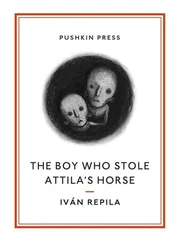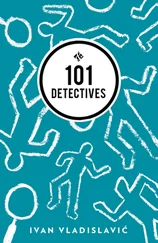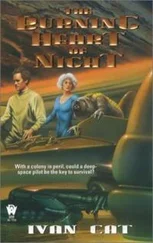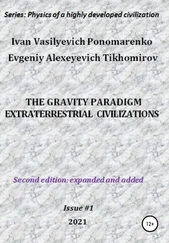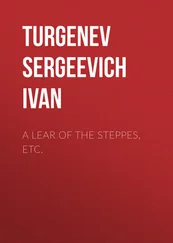There was something touching in the fact that the details of his person were familiar to her. His clothes contained him like a baggy second skin, imperfectly moulted: his overalls assumed the shape of his elbows and knees, and there were shiny bumps and ridges on his velskoene where the bones of his toes had pressed against the hide. Those were his favourite overalls, they had seen him through countless DIY projects, including the bricking up of the fireplace and the laying of the Slasto. She saw him kneeling, he looked over his shoulder and grinned. Each job had left a blemish on the cloth — a birthmark of enamel paint, a festering oil-stain, sutured cuts and tears, scabs of wood glue and Polyfilla. Just to look at them gave her pins and needles in her hands.
Now his steady exertions produced circles of sweat in his armpits, which spread out to meet a dark diamond in the small of his back, and the familiar khaki fabric changed slowly to chocolate-brown. This patient transformation flushed the hard-won scars to the surface; it also summoned up some elemental process of nature itself and brought more tears to her eyes, which she had to dab away resentfully with the hem of her skirt.
As the hours passed, Mr’s neck seemed to redden visibly, but surely, she reasoned, that had more to do with the dust than the pale sunlight. More than once she was on the point of going to his rescue with a tube of Block Out and a pitcher of iced water, but she was held back by an intuition that this would implicate her in his foolhardy coalition with Him.
What made Nieuwenhuizen’s trickery all the more despicable was that Mr was so glad to be of service, and therefore so easy to exploit. It was clear to Mrs that He was avoiding Mr. He always contrived to be in some neck of the woods where Mr was not. And whereas Mr did the work of two men, He did nothing but stir and shake, and scare up clouds of dust to obscure His own idleness. Now He was down in the gutter next to the road herding dry leaves into piles; now He was galloping on the spot and hurling His trident into the blue; now He was prancing up and down along the hedge, beating it with the flat of His spade, raking it with His hands and kicking it with His feet, so that its leaves flew up in clattering flocks and whirled in circles overhead. Where would they come to roost? Where they liked. What was the purpose of it all? To make more work for Mr.
“Lunch!” Mrs Malgas called feebly at one o’clock, and again, “Lunch!” But her summons fell on deaf ears.
In the mid-afternoon, when Mr had single-handedly raked the entire plot and was driving the stragglers from the moat around the tent, Nieuwenhuizen was stalking from heap to heap stirring up a new cloud of dust, which boiled over the hedge like a thunder-cloud, bruised and bloodied by the westering sun.
Nieuwenhuizen revolted Mrs Malgas. He was a source of dirt and chaos. She sealed all the windows, but His dust continued to sprout like a five o’clock shadow on the smooth surfaces of her home.
He’s the salt of the earth, Nieuwenhuizen was thinking. A bit of a clod, but as solid as a rock for all that. And on top of it an eager beaver and a busy bee. He’ll do. But as for that flimsy Mrs of his. . lurking behind the wall as if she’s invisible. She’s no more than a scrap of tissue-paper. If you hold her up to the light you can see right through her.···
An astute observer on higher ground may have understood the way in which Nieuwenhuizen kept his distance from Malgas in terms of the predictable revolution of the one man around the other, for when Malgas had raised his final heap Nieuwenhuizen was standing by to shake the excess dust out of it, and they straightened their backs and lowered their implements in unison. They walked in step — although Malgas was a single pace behind — to the middle of the plot, paused on the spot above the subterranean ruins of the anthill (VIE), and surveyed the landscape. It was an affecting sight — the stubbled earth with its ordered rows of mounds like so many graves. “How many?” Malgas wondered, while Nieuwenhuizen counted them under his breath.
A few meaningful glances were exchanged. Malgas went home to fetch his wheelbarrow. Mrs tried to attract his attention through the bedroom window, but he looked the other way. When he returned, whistling to disguise the unseemly scree-scree-scree of the axle, Nieuwenhuizen had rolled aside the hearthstones from the mouth of his tent to make space for the big heap.
In the gathering darkness they loaded the provisional heaps onto the barrow one by one and conveyed them to the depot. A jaundiced eye may have observed that Nieuwenhuizen did a great deal of pointing and waving, whereas Malgas wielded the fork and pushed the barrow. It was dark by the time they were done. The darkness brought with it, paradoxically, a boyish lightheartedness, which Nieuwenhuizen acknowledged by leaping onto the barrow and standing to attention, and Malgas confirmed by stepping once more into the breach and taking him on a tour of the site. When Nieuwenhuizen had had his fill of swaying hilariously and waving to unseen crowds of spectators, Malgas deposited him in the shadow of the heap.
The mountain of rotting vegetation towered over them. Here and there the turned leaves glowed like embers in the faded foliage, as if the whole mass would burst into flames if they so much as whispered near it.
With due caution, Nieuwenhuizen angled his face away and spoke for the first time since work had begun that morning. “Malgas, you’ve done a splendid job. I don’t think I could have done it without you. I give you my word: nothing will grow here again, unless we want it to. Go home now. Rest. When you’ve refreshed yourself, come back, if you like, and we’ll burn this heap to the ground, root and branch. Thanks a million, see you later.”
Malgas understood intuitively the significance of this effusive utterance, just as he had appreciated the abbreviated chit-chat of the morning: it was in direct proportion to the satiated fullness of a job well done. So he himself embarked on a comprehensive response, which Nieuwenhuizen graciously allowed to run to three paragraphs before bidding him farewell and crawling without further ado into his tent.Malgas went home.
Nieuwenhuizen lay on his back, with his head pillowed on one of his boots and his bare feet cushioned on his hat. A candle in a bully-beef tin rested on his stomach.
An insect was scaling the vault of mosquito-netting above him, and he followed its progress with interest. In everyday circumstances he would have squashed the intruder for reasons of hygiene, but he felt reckless tonight; and in any case, he had held the candle up a moment before and established that it was on the outside of the net. It was a perfectly ordinary bug, of the sort one might encounter in a cartoon wearing a waistcoat and spats. Its feet seemed disproportionately large and were shaped like exclamation marks.
The bug reached the apex of the tent, where the net was suspended from the tent-pole, and stopped. He willed it to keep going, over the top and down the other side, but it wouldn’t budge. He flicked at it with his forefinger, hoping that it would curl itself into a ball and tumble down the way it had come, but it merely put out its feelers and clung to its position.He held the flame close, to make out the expression on its face.
Meanwhile, Malgas stood on the scale in his bathroom, gazing down over the curvature of his belly at the figures on the dial, and tried to recall the wording of his recent thank-you speech.
He had started: “Ladies and gentlemen — I beg your pardon — Father. It gives me great pleasure to take this public opportunity of expressing my gratitude for. .” But the rest of it was gone. He remembered some isolated words — “honour,” “neighbourly,” “vicinity,” “collaboration,” “endeavor.” And he remembered what he was saying when Nieuwenhuizen interrupted him: “When the time comes—”“Cheerio!”
Читать дальше


